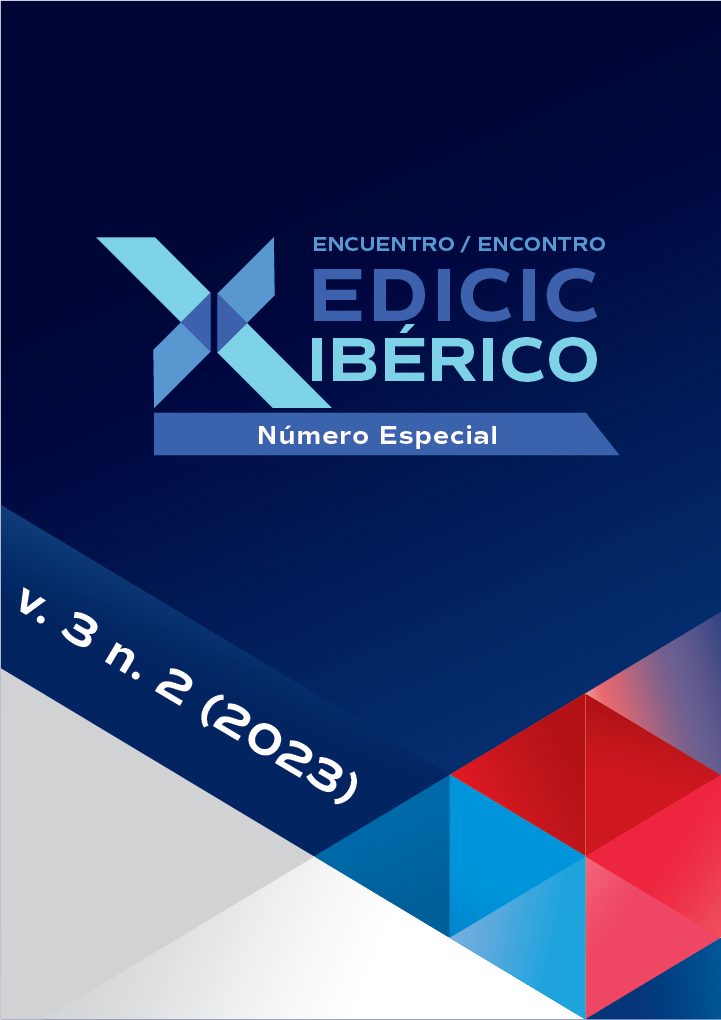Feminist epistemologies and information science: an analysis of comic books
DOI:
https://doi.org/10.62758/re.v3i2.210Keywords:
Feminist Epistemologies, Comics, Information Science, Knowledge Organization, Female Comic ArtistsAbstract
This research addresses the relationship between comics, feminist epistemologies, and Information Science, with a focus on knowledge organization and the production of female comic artists. Comics are informational objects that blend visual and verbal elements, conveying narratives, symbolism, and cultural themes. The connection between gender, women, and science extends to comics, where objective knowledge is questioned, and female perspectives are valued. Comics can foster diverse representation and address social issues through Feminist Epistemologies. In the field of Information Science, these epistemologies reflect on the production, organization, and circulation of information, challenging androcentric biases. Thus, the study proposes as its general objective the interrelation between comics and feminist epistemologies, regarding knowledge organization, highlighting the production of Brazilian comic artists. Methodologically, it consists of a qualitative approach, of theoretical nature, and grounded in bibliographic research. The results discuss the recent recognition of contributions by female cartoonists and comic artists, despite many Western productions reinforcing male stereotypes, reflecting gender hierarchies. The male and female representation in comics mirrors historical constructions of identity and values. In this sense, feminist epistemologies challenge traditional representations and promote social changes. This approach empowers female voices, questioning hierarchical structures. It can be concluded that the study contributes to a deeper understanding of gender representations in comics, promoting inclusion and diversity. The perspective of feminist epistemologies offers a critical analysis of the knowledge structure in comics, problematizing gender, and power representations. This approach seeks equality and diversity, empowering female voices, and enriching the understanding of different forms of knowledge and experience.
References
Abbagnano, N. (2000) Dicionário de Filosofia. São Paulo: Martins Fontes.
Brunet, P.; Davis, B. (2022). Comic Book Women: Characters, Creators, and Culture in the Golden Age. University of Texas Press.
Chaui, M. (2000). Convite à Filosofia. São Paulo: Ática.
Chenault, W. (2007). Working the Margins: Women in the Comic Book Industry. Thesis, Georgia State University.
Crescêncio, C. L. (2021b). Feminismos e humor gráfico na web: uma reflexão sobre a produção contemporânea de mulheres no Brasil. XIV Jornadas de Sociología. Facultad de Ciencias Sociales, Universidad de Buenos Aires, Buenos Aires.
Cocca, C. (2014). The ‘Broke Back Test’: a quantitative and qualitative analysis of portrayals of women in mainstream superhero comics, 1993–2013, Journal of Graphic Novels and Comics, 5(4), 411-428, DOI: 10.1080/21504857.2014.916327 DOI: https://doi.org/10.1080/21504857.2014.916327
Crescêncio, C. L. (2018). As mulheres ou os silêncios do humor: uma análise da presença de mulheres no humor gráfico brasileiro (1968-2011). Revista Ártemis, 26 (1), p. 53–75. DOI: 10.22478/ufpb.1807-8214.2018v26n1.42094. DOI: https://doi.org/10.22478/ufpb.1807-8214.2018v26n1.42094
Crescêncio, C. L. (2021a). “Pilulinhas Porretas” e feministas de Conceição Cahú nos jornais Brasil Mulher e Nós Mulheres (1976-1978). Revista De La Red Intercátedras De Historia De América Latina Contemporánea, (15), 154–179. Recuperado a partir de https://revistas.unc.edu.ar/index.php/RIHALC/article/view/35847
Foucault, M. (2013). Vigiar e punir. Leya.
Fox, M. J. & Oslon, H. A. (2012). Feminist epistemologies and knowledge organization. In Hurli, L; Simiraglia (Ed.). Culture Frames knowledge. Wurzburg: Ergon Verlag, 79-98.
Galvan, M. (2020). Archiving Wimmen: Collectives, networks, and comix. In Archives and New Modes of Feminist Research (pp. 22-40). Routledge. DOI: https://doi.org/10.4324/9780429442032-3
Goda & Kleinert, A. (2011). Enciclopédia dos quadrinhos. Porto Alegre: L&PM Editores.
Inness S. A. (2004). Action chicks: new images of tough woman in popular culture. New York: Palgrave. DOI: https://doi.org/10.1057/9781403981240
Japiassu, H. & Marcondes, D. (2006). Dicionário básico de filosofia. Rio de Janeiro: Zahar.
Martínez-Avila D. & Mello, M. R. G. (2022). Epistemologias, gênero e dogmatismo científico: desdobramentos na organização do conhecimento. Logeion: filosofia da informação, (9), 182-194. DOI: 10.21728/logeion.2022v9n1.p182-194. DOI: https://doi.org/10.21728/logeion.2022v9n1.p182-194
Munt, S. R., & Richards, R. (2020). Feminist Comics in an International Frame. Feminist Encounters: A Journal of Critical Studies in Culture and Politics, 4(1). https://doi.org/10.20897/femenc/7905 DOI: https://doi.org/10.20897/femenc/7905
Nogueira, N. A. S. (2017, julho 24–28). Pagu: política e pioneirismo nas histórias em quadrinhos nos anos de 1930 [Seção de conferência]. XXIX Simpósio Nacional de História, Universidade de Brasilia, Brasil. https://www.snh2017.anpuh.org/resources/anais/54/1502671728_ARQUIVO_PAGU_ANPUH_CORRIGIDO.pdf
Pavarina, E. C. (No prelo). Histórias em quadrinhos e ciência da informação: uma análise da comunidade discursiva. AtoZ: novas práticas em informação e conhecimento.
Pires, M. C. F. (2019). Outras mulheres, outras condutas: feminismos e humor gráfico nos quadrinhos produzidos por mulheres. Artcultura: Revista de História, Cultura e Arte, 21 (39), 71-87. DOI: https://doi.org/10.14393/artc-v21-n39-2019-52027
Schodt, F. L. (1983). Manga! Manga! The World of Japanese Comics. Nova York: Kodansha.
Swales, J. M. (1990) Genre analysis English in Academic and Research Settings. Cambridge: Cambridge University Press.
Turberville, T. (2016). The Female Justice League: The Misrepresentations of Women in Comic Books. Stylus Knights Write Showcase Special Issue, p. 71-82.
Vergueiro, W. C. S. (2005). Histórias em quadrinhos e serviços de informação: um relacionamento em fase de definição. DataGramaZero, 6(2). https://brapci.inf.br/index.php/res/v/5643.
Downloads
Published
How to Cite
Issue
Section
License
Copyright (c) 2023 Revista EDICIC

This work is licensed under a Creative Commons Attribution 4.0 International License.
The Association holds the copyright of the texts it publishes and, therefore, adopts a Creative Commons License, CC BY 4.0 DEED Attribution 4.0 International (https://creativecommons.org/
You are free to:
- Share: copy and redistribute the material in any medium or format for any purpose, even commercially.
- Adapt: remix, transform, and build upon the material for any purpose, even commercially.






